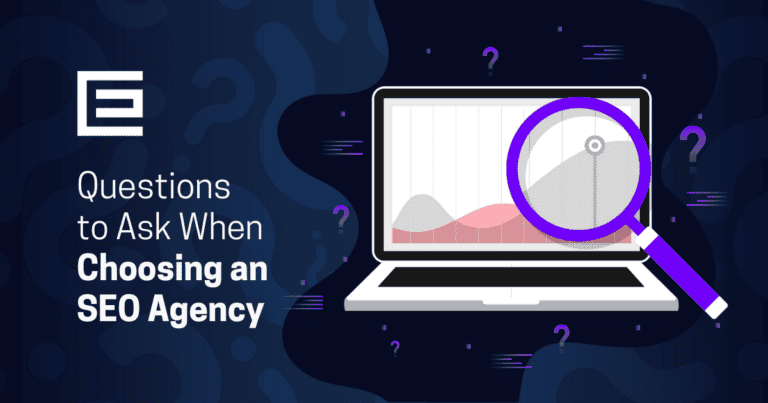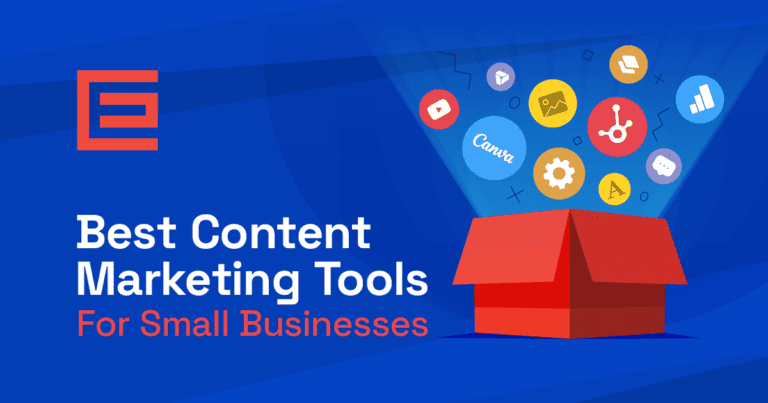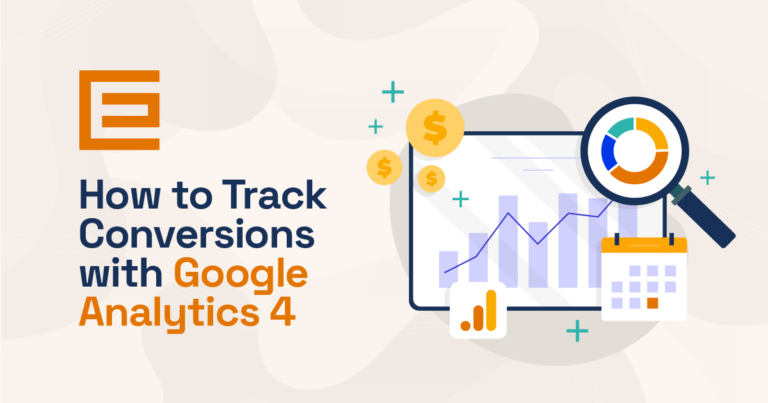In the digital era, the significance of having a business website cannot be overstated. It serves as the digital storefront of your brand, offering a platform where customers can interact with your business 24/7. A well-designed website not only enhances your brand’s visibility but also builds credibility, allowing customers to access your products and services at their convenience. In an age where the majority of consumers turn to the internet for information, reviews, and shopping, not having an online presence can put your business at a significant disadvantage.
Building a business website is a multifaceted process that requires careful planning, design, content creation, and maintenance. It’s a critical investment in today’s digital world, where a robust online presence can be the key to attracting and retaining customers.
Follow our detailed, step-by-step guide to build a successful business website.
Planning Your Website
The initial phase in building a business website is centered around meticulous planning. This stage is pivotal as it lays the groundwork for all the elements that follow. The first step in this process is identifying the primary purpose of your website. This purpose could range from serving as an online catalog of products, a platform for e-commerce transactions, a source of information about your services, or a hub for building community engagement. Understanding this purpose is crucial as it influences the design, functionality, and content of your website. For instance, an e-commerce site would require a secure payment gateway, while an informational blog would focus more on content and SEO.
Next, defining your business goals and target audience is essential. Your goals might include increasing brand awareness, generating leads, selling products, or providing customer support. Each goal will dictate different features and design elements on your website. For example, a site focused on lead generation might prioritize newsletter sign-up forms and contact information. Understanding your target audience is equally important. Demographics, interests, and online behaviors of your audience will influence the design and content of your website. A website targeting a younger demographic might have a more vibrant design and be more mobile-focused, while one targeting professionals might have a more formal layout and in-depth content.
Finally, choosing a suitable domain name is a critical step in the planning process. Your domain name should be easy to remember, reflect your brand, and ideally include keywords relevant to your business. It’s the first element of your brand that potential customers will interact with, so it needs to make a strong impression. Additionally, a good domain name can also aid in SEO and improve your online visibility. It’s advisable to choose a domain name that is concise, easy to spell, and free from hyphens or numbers, as these can complicate the user’s ability to find your site.
In summary, planning your website involves a clear understanding of its purpose, defining specific business goals and knowing your target audience, and selecting a domain name that is both reflective of your brand and user-friendly. This foundational stage sets the tone for the entire website building process, ensuring that the final product is not only aesthetically pleasing but also strategically aligned with your business objectives.
Design and Hosting
When it comes to building a business website, two critical components that significantly impact its success are its design and hosting. These elements not only determine how your website looks and functions but also how reliably and quickly it can be accessed by users.
Selecting a Web Host and Website Agency or Doing It Yourself
The choice between hiring a website agency, selecting a web host, and taking a DIY approach depends largely on your technical expertise, budget, and specific business needs.
Web Hosting: Choosing the right web host is crucial for your website’s performance and reliability. Factors to consider include uptime, customer support, scalability, security features, and cost. Options range from shared hosting, ideal for small to medium websites, to more robust solutions like dedicated hosting for larger sites with high traffic.
Website Agency vs. DIY: If you lack technical expertise or time, hiring a website agency can be beneficial. They bring professional experience in design and development, ensuring your website is both aesthetically pleasing and functionally robust. On the other hand, a DIY approach using website builders like WordPress, Wix, or Squarespace can be more cost-effective. These platforms are user-friendly and offer a range of customizable templates, making them suitable for those with limited coding knowledge.
Understanding the Importance of Website Design
User Experience and Interface: The design of your website plays a pivotal role in how users perceive and interact with your brand. A good user interface (UI) should be visually appealing and intuitive, guiding visitors seamlessly through your site. User experience (UX) goes deeper, ensuring that users find value in what your website provides. This includes easy navigation, fast loading times, and accessible content.
Mobile Responsiveness: With the increasing use of mobile devices to access the internet, your website must perform well across all device types. Mobile responsiveness ensures that your site adjusts to different screen sizes, providing an optimal viewing experience. This is not just about aesthetics; it’s also a ranking factor for search engines like Google.
Tips for Choosing a Website Agency
If you decide to go with a website agency, here are some tips to help you choose the right one:
- Portfolio and Experience: Look at their previous work to assess their style and expertise. An agency experienced in your industry will understand your specific needs better.
- Client Testimonials and Reviews: Feedback from past clients can provide insights into the agency’s reliability, customer service, and the quality of their work.
- Services Offered: Ensure the agency provides comprehensive services, including design, development, SEO, and post-launch support.
- Communication and Collaboration: Choose an agency that communicates clearly and is open to collaboration. Your website is a reflection of your business, and the agency should be willing to align its approach with your vision.
- Pricing and Contracts: Understand their pricing structure and what is included in the contract. It should be transparent and within your budget.
In conclusion, the design and hosting of your business website are foundational to its success. Whether you choose to hire a website agency or take a DIY approach, it’s important to focus on creating a site that offers an excellent user experience and is responsive across all devices. By carefully selecting a web host and a website agency, you can ensure that your website not only looks great but also performs well, providing a solid foundation for your online presence.
Website Content and Structure
The content and structure of your website are crucial in conveying your brand’s message and guiding visitors through your site. A well-structured website with compelling content can significantly enhance user experience and improve your site’s performance in search engine rankings.
Creating Relevant Pages
A fundamental step in website design is creating relevant pages that cater to the needs of your audience while showcasing your business effectively. Essential pages to include are:
- Home Page: This is often the first point of contact with your audience and should clearly represent your brand and value proposition. It should be inviting and guide visitors to other sections of your site.
- About Us Page: This page tells your business’s story, introduces the team, and builds trust with your audience. It’s an opportunity to share your business values, history, and what sets you apart from competitors.
- Services/Products Page: Clearly and attractively present your services or products. Detailed descriptions, high-quality images, and pricing information can help visitors make informed decisions.
- Contact Page: This page should include various ways to contact your business, such as phone numbers, email addresses, a contact form, and possibly a map or directions. It’s essential for generating leads and providing customer support.
Writing Engaging and SEO-Friendly Content
The content on your website should not only engage readers but also be optimized for search engines (SEO). This involves using relevant keywords naturally, creating quality content that adds value, and ensuring your content is updated regularly. Engaging content keeps visitors on your site longer, reducing bounce rates and increasing the likelihood of conversions. SEO-friendly content, on the other hand, helps your website rank higher in search engine results, making it more visible to potential customers.
Importance of Clear Navigation and Call-to-Action Buttons
Clear navigation is key to a positive user experience. Visitors should be able to find information quickly and easily. A well-structured menu, search functionality, and a logical page hierarchy contribute to effective navigation. Each page should be easily accessible from any part of the website, with a consistent layout across pages.
Call-to-action (CTA) buttons are another critical element. They guide users on what to do next – whether it’s making a purchase, signing up for a newsletter, or contacting your business. CTAs should be prominently placed and worded clearly to encourage action. They play a significant role in converting visitors into customers or leads.
In summary, the content and structure of your website are vital in engaging visitors and guiding them through your site. By creating relevant pages, writing engaging and SEO-friendly content, and ensuring clear navigation and effective call-to-action buttons, you can create a website that not only attracts visitors but also encourages them to take the desired actions, ultimately contributing to the success of your business.
SEO and Online Visibility
In the digital landscape, Search Engine Optimization (SEO) is a critical component for enhancing a website’s visibility and attracting organic traffic. Understanding and implementing effective SEO strategies can significantly impact your website’s ranking on search engines like Google, making it more accessible to potential customers.
Basics of Search Engine Optimization (SEO)
SEO involves optimizing various elements of your website to improve its ranking in search engine results pages (SERPs). This process is centered around understanding what your target audience is searching for online, the keywords they use, and the type of content they wish to consume. The goal is to tailor your website in a way that aligns with these factors, thereby increasing its relevance and authority in the eyes of search engines. Key aspects of SEO include keyword research, content quality, site speed, mobile-friendliness, and building high-quality backlinks.
Implementing On-Page SEO Strategies
On-page SEO refers to the practice of optimizing individual web pages to rank higher and earn more relevant traffic. This includes optimizing your website’s content as well as the HTML source code. Key strategies include:
- Keyword Optimization: Incorporating relevant keywords into your content, including titles, headings, and the body of your text, in a natural and reader-friendly manner.
- Meta Tags: Crafting compelling meta titles and descriptions that include target keywords. These tags are crucial as they appear in SERPs and can influence click-through rates.
- URL Structure: Using SEO-friendly URLs that are concise and include keywords.
- Internal Linking: Creating links to other pages within your website helps search engines understand the structure of your site and distributes page authority throughout your site.
- Content Quality: Producing high-quality, original content that adds value to your audience. Content should be informative, engaging, and updated regularly to maintain relevance.
Importance of Local SEO for Businesses
For businesses that operate on a local level, such as brick-and-mortar stores or local services, local SEO is particularly important. Local SEO focuses on optimizing your website to appear in local search results. This includes optimizing your Google My Business listing, ensuring your business appears in local directories, and including local keywords in your website’s content. Positive reviews and consistent NAP (Name, Address, Phone Number) information across the web also enhance local SEO efforts. Local SEO is crucial as it helps businesses connect with nearby customers, increases foot traffic, and improves local online visibility.
SEO is an indispensable tool in the digital marketing arsenal. By understanding the basics of SEO, implementing effective on-page SEO strategies, and focusing on local SEO for businesses with a physical presence, you can significantly improve your online visibility. This not only helps in attracting more organic traffic but also contributes to the overall growth and success of your business in the digital realm.
Website Functionality and Features
A successful business website is not just about attractive design and content; it’s also about the functionality and features that enhance user experience and meet business needs. Integrating essential features, ensuring website security and privacy, and maintaining a fast loading speed are key elements that contribute to the effectiveness and reliability of your website.
Integrating Essential Features
Depending on your business type and objectives, your website may require specific functionalities to serve your customers effectively. For e-commerce businesses, integrating robust e-commerce capabilities is crucial. This includes shopping carts, product catalogs, secure payment gateways, and customer account management systems. For service-oriented businesses, features like online booking forms, service calculators, or interactive tools can enhance user engagement.
In addition to these specialized features, general functionalities like contact forms, email sign-up forms, live chat, and social media integration are important across all types of business websites. These features not only improve user interaction but also aid in lead generation and customer service.
Ensuring Website Security and Privacy
In an era where data breaches and online threats are increasingly common, ensuring the security and privacy of your website is paramount. This involves implementing measures to protect sensitive customer data and your website from cyber threats. Essential security features include SSL encryption, which secures the connection between your website and your users’ browsers, regular software updates, secure hosting, and robust firewalls. Additionally, having clear privacy policies and terms of service on your website helps build trust with your users by transparently communicating how their data is used and protected.
Importance of Fast Loading Speed
The loading speed of your website is a critical factor that impacts user experience and search engine rankings. Websites that load quickly have lower bounce rates and higher engagement rates. Users are more likely to stay on a site that performs well, which can lead to increased conversions and customer retention. To improve your website’s loading speed, consider optimizing image sizes, minimizing the use of heavy scripts and plugins, leveraging browser caching, and using a content delivery network (CDN). Regularly testing and monitoring your website’s speed can help identify areas for improvement and ensure your site remains fast and efficient.
The functionality and features of your website play a significant role in its overall performance and user satisfaction. By integrating essential features tailored to your business needs, prioritizing website security and privacy, and ensuring a fast loading speed, you can create a robust and effective online presence that not only attracts visitors but also converts them into loyal customers.
Maintenance and Updating
A critical aspect of managing a successful business website is its ongoing maintenance and updating. This continuous process ensures that your website remains functional, secure, and relevant, thereby providing a consistently positive experience for your visitors.
Regular Updates and Maintenance
Regular updates and maintenance are essential for several reasons. Firstly, they ensure that all components of your website, such as content management systems (CMS), plugins, and scripts, are up to date. This is crucial for security, as outdated software can be vulnerable to cyber-attacks. Regular maintenance also involves fixing any broken links, checking for errors, and ensuring that all forms and features are working correctly. This proactive approach helps in avoiding any potential disruptions that could negatively impact the user experience or your website’s performance.
Additionally, updating the content on your website is vital. This includes refreshing blog posts, updating product information, and ensuring that all contact and company information is current. Regular content updates not only keep your website relevant but also contribute to better SEO performance, as search engines favor websites with fresh and updated content.
Monitoring Website Performance and Analytics
Monitoring your website’s performance through analytics is key to understanding how visitors interact with your site. Tools like Google Analytics provide valuable insights into visitor behavior, traffic sources, page views, bounce rates, and more. By analyzing this data, you can identify what’s working well and areas that need improvement. For instance, if certain pages have high bounce rates, it might indicate that the content is not meeting users’ expectations or that the page is taking too long to load.
Analytics can also help in tracking the effectiveness of your SEO strategies, marketing campaigns, and overall user engagement. This data-driven approach allows for informed decision-making and helps in optimizing your website for better performance and user satisfaction.
Engaging with Visitors through Feedback and Updates
Engaging with your website visitors is crucial for building relationships and fostering loyalty. Encourage feedback by providing easy-to-use feedback forms or conducting surveys. This direct input from users can be invaluable in understanding their needs and preferences, and in identifying areas for improvement.
Regularly updating your visitors about new content, features, or services through newsletters, blog posts, or social media can also keep them engaged and informed. It shows that your business is active and responsive, which can enhance trust and credibility.
Regular maintenance and updating, monitoring website performance and analytics, and engaging with visitors are key components in the ongoing management of a business website. These practices not only ensure that your website remains functional and secure but also help in continuously improving the user experience and keeping your audience engaged and informed.
Marketing Your Website
Once your business website is live and operational, the next crucial step is to effectively market it to reach your target audience and achieve your business goals. Utilizing a combination of marketing strategies can significantly enhance your website’s visibility and attract more visitors. Key strategies include social media marketing, email marketing, and content marketing.
Social Media Marketing
Social media platforms offer a powerful tool for promoting your website. They provide a direct channel to engage with your audience, build brand awareness, and drive traffic to your site. To effectively use social media marketing:
- Choose the Right Platforms: Identify where your target audience spends most of their time. Different platforms cater to different demographics and interests.
- Share Engaging Content: Regularly post content that is relevant, engaging, and encourages interaction. This can include sharing blog posts from your website, creating infographics, or even behind-the-scenes glimpses of your business.
- Interact with Your Audience: Respond to comments, messages, and reviews. Engagement builds community and can increase your brand’s reach through shares and recommendations.
- Use Social Media Advertising: Platforms like Facebook and Instagram offer targeted advertising options to reach a broader audience. These ads can be tailored based on demographics, interests, and behavior.
Email Marketing
Email marketing remains one of the most effective ways to communicate with your audience and drive traffic to your website. It involves sending emails to a list of subscribers who have opted in to receive updates from your business. To maximize the effectiveness of email marketing:
- Build a Subscriber List: Encourage website visitors to subscribe to your newsletter. Offer incentives like exclusive content, discounts, or early access to products or services.
- Create Valuable Content: Send newsletters that provide value to your subscribers. This could include industry insights, new blog posts, product updates, or special offers.
- Personalize Your Emails: Personalized emails have higher engagement rates. Use the subscriber’s name and tailor content based on their interests or past interactions with your website.
- Monitor Performance: Use email marketing tools to track open rates, click-through rates, and conversions. This data can help refine your strategy and improve future campaigns.
Content Marketing
Content marketing involves creating and sharing valuable content to attract and retain a clearly defined audience. This strategy is aimed at establishing your expertise, promoting brand awareness, and keeping your business top of mind. Effective content marketing includes:
- Blogging: Regularly update your blog with informative and engaging posts. This not only drives traffic to your website but also improves SEO.
- SEO: Optimize all content for search engines to improve visibility and attract organic traffic.
- Diverse Formats: Use various formats like videos, podcasts, infographics, and webinars to cater to different preferences and increase engagement.
- Promote Content: Share your content across various channels, including social media, email newsletters, and other platforms to reach a wider audience.
Marketing your website is an ongoing process that requires a strategic approach. By leveraging social media marketing, email marketing, and content marketing, you can effectively promote your website, engage with your audience, and drive traffic that can convert into leads and sales. Each of these strategies offers unique benefits and, when used in combination, can significantly enhance your online presence and business growth.
Wrapping it Up
It’s important to recognize that building and maintaining a business website is not just a task, but a continuous journey in the digital landscape. Each step in this journey adds value to your online presence, helping to connect with your audience, build your brand, and achieve your business objectives. The digital world offers immense opportunities, and having a well-crafted website is your gateway to these opportunities.
With dedication, the right strategies, and a focus on continuous improvement, your business website can become a powerful tool in achieving success and growth in the digital era.
Not sure where to begin? Feel free to reach out to the team at TheeDigtial for help.
Tags: Our Favorites







